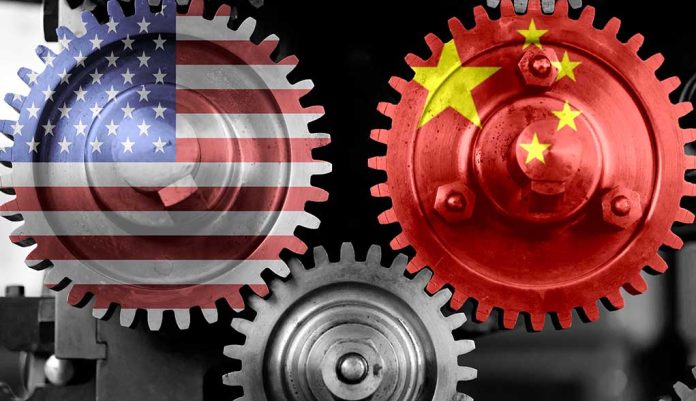
GM’s $625 million gamble on U.S. lithium production could reshape the EV landscape, but at what cost to taxpayers and the environment?
At a Glance
- GM invests $625 million in Thacker Pass, the largest known lithium deposit in North America
- Project aims to produce enough lithium for 800,000 EVs annually by 2027
- U.S. Department of Energy plans to lend up to $2.26 billion for the project
- Move reduces reliance on Chinese lithium imports, aligning with Biden administration’s goals
- Critics question environmental impact and massive taxpayer-funded subsidies
GM’s Bold Move: Securing Domestic Lithium Supply
General Motors has made a significant play in the electric vehicle (EV) market, investing $625 million in the Thacker Pass lithium project in Nevada. This move gives GM a 38% asset-level ownership stake in what’s touted as the largest lithium deposit in North America. While this investment aims to boost U.S. EV production and reduce dependence on Chinese imports, it raises questions about the true cost of this government-backed venture.
GM raises investment in lithium mine to nearly $1bn | Financial Times
US carmaker seeks to secure supply of metal expected to suffer shortfalls because of rising demand in switch to EVs
US carmaker General Motors has increased its investment in a lithium mine to nearly $1bn as… pic.twitter.com/dxtgzpsynG
— Owen Gregorian (@OwenGregorian) October 17, 2024
The investment includes $430 million in direct cash funding for Phase 1 construction and a $195 million letter of credit facility. Lithium Americas, holding the remaining 62% ownership, stands to benefit greatly from this partnership and additional government support.
GM doubles down on EV batteries, invests $625M in lithium project https://t.co/yjJVaT2DWA by @Pras_S
— Yahoo Finance (@YahooFinance) October 16, 2024
Taxpayer-Funded EV Dreams: A Risky Proposition?
The U.S. Department of Energy’s plan to lend Lithium Americas up to $2.26 billion for the Thacker Pass project raises eyebrows. This could potentially be the largest loan for a domestic lithium mining project, leaving taxpayers on the hook for a speculative venture in a volatile market.
“Sourcing critical EV raw materials, like lithium, from suppliers in the US, is expected to help us manage battery cell costs, deliver value to our customers and investors, and create jobs,” said Jeff Morrison, GM senior vice president of global purchasing and supply chain, in a statement.
While job creation is laudable, the massive government subsidies raise questions about market distortion and the wisdom of picking winners in the energy sector. The Biden administration’s goal of 50% of new car sales being electric by 2030 seems to be driving this push, regardless of market realities or consumer preferences.
Environmental Concerns and Market Realities
Thacker Pass is expected to produce 40,000 metric tons of lithium carbonate annually by 2027, with plans to double production to 80,000 metric tons per year. While this could power up to 1 million EVs annually, the environmental impact of such large-scale mining operations cannot be ignored. The rush to secure domestic lithium supply seems to be overshadowing potential long-term ecological consequences.
“This partnership with GM signifies a major step forward in our commitment to supply the growing demand for lithium as we transition to a sustainable energy future,” said Lithium Americas CEO, Jonathan Evans.
However, GM’s ambitious EV sales targets seem disconnected from current market demand. The company aims to produce and sell 200,000 EVs this year, yet recent sales figures show just over 32,000 EVs sold in Q3. This discrepancy between production goals and actual sales raises questions about the viability of such massive investments in lithium production.
A Geopolitical Chess Move
The investment comes amid heightened U.S.-China tensions, with China accused of flooding the lithium market and causing price drops that affect global production. While reducing reliance on Chinese imports is a strategic goal, the methods employed—massive government subsidies and potential environmental trade-offs — deserve scrutiny.
The U.S. aims to supply more than 20% of global lithium demand outside of China by 2030. This goal, while ambitious, may come at a significant cost to taxpayers and the environment. As conservatives, we must question whether this government-driven push towards EVs aligns with free-market principles and sound environmental stewardship.
As GM doubles down on its EV bet, only time will tell if this massive investment in domestic lithium production will pay off or become another example of misguided government intervention in the energy sector. The road to energy independence is paved with good intentions, but we must remain vigilant about the true costs and consequences of these grand plans.

















